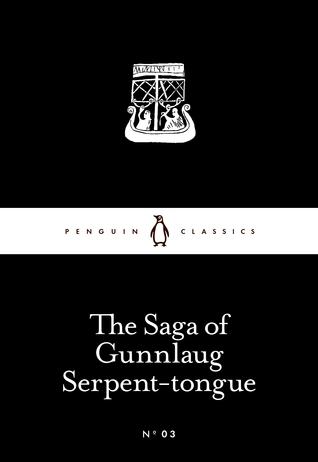The Saga of Gunnlaug Serpent-tongue
Reviewed Sep 11, 2019 on The Litt Review.

When in Iceland, it seems fitting to pick up books with titles like “The Saga of Gunnlaug Serpent-Tongue,” because there’s very few places in the world where you can see those types of books displayed on promising looking stands near the register. I don’t regret my decision to follow this intuition, at all.
This saga was short - barely 50 pages in a pocket-sized book, (and enabling easy reading for the commuter was the original goal of Penguin anyway). I imagine it would be longer if it was told in front of a fire on a cold, wintry night, and I hope I live long enough to test this experientially. It was a delight to read, even within the cold confines of an airplane. Gunnlaug is a man who is quite good at making poems, but fairly bad at choosing liege lords who would give him the freedom to go home to marry his betrothed. (Small note: serpent-tongue means witty, and doesn’t seem to have the same connotations as Gríma Wormtongue.) When she marries another unwillingly, all hell breaks loose, which is, in historical Iceland, something equivalent to bunches of family members holding back two spitting men trying to rap battle at one another as hard as possible. I can’t imagine a more entertaining spectacle.
This is the first saga I’ve read in a long time, and now with a bit more understanding of Icelandic culture and geography, thanks to the ministrations of my friend Jamie. All in all, the book led me to feel that I should learn Icelandic, and that I could learn to love to live in a place where even the conservative local newspaper has poetry sections filled with drapas and flokks; where, hundreds of years ago, the best thing to say about a man was that “he was a big, strong man, well worth looking at, and a good poet.” I’m sold (if only Iceland were warmer).
Oh, and everyone dies at the end.
Do you want to get book reviews and notes from books I read in your inbox? Sign up! I'll include a summary, my favorite quotes from the book, and any vocabulary I found interesting or didn't know already.